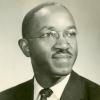Cobbloviate
Not Just Regional but Rural

A new study shows that, among other things, 62 percent of working-class white Southerners support Mitt Romney, a figure roughly 20 points higher than in any other region. The fundamental explanation for such strong support for Romney among working-class white Southerners is actually quite simple. An overwhelming majority of them are Republicans—and highly partisan ones at that. Beyond this point, however, things get a little more complicated. The old blatantly racial Republican strategy that won Barry Goldwater five Southern states in 1964 has given way to a subtler, more suburban-oriented emphasis on fiscal conservatism and protecting the rewards of individual success. Yet George W. Bush ran stronger (60 percent-plus) in Southern rural white-majority counties than in metropolitan (55 percent) ones in 2004. Four years later, the counties where John McCain ran stronger than Bush fit this profile as well. In general, these counties were not only decidedly rural and majority-white, but sparsely populated, economically and educationally laggard, with a strong evangelical tilt.
History Matters
When the current survey notes that 58 percent of working-class white Southerners feel that the federal government has been too attentive to the problems of blacks and other minorities, it is simply affirming that history matters. Beginning in the 1850s (when the slavocrats, who disdained the very notion of educating the lesser whites, warned them that without slavery they would be reduced to social and economic equality with blacks) and moving forward to the Civil War, Reconstruction, the New Deal, the Civil Rights movement, and the Great Society, regardless of whether the federal government was in Republican or Democratic hands, low-income white Southerners have been encouraged to see it as, if not primarily, at least potentially, an agent of Yankee outsiders bent on elevating black people at their expense. (Many years later, labor unions were tarred with essentially the same brush while the South’s captains of industry consistently flouted federal labor regulations with absolute impunity.)
Wrong-headed and paranoid as this perception may be, there is little doubt that, as of the New Deal, the Democratic Party began to grow increasingly responsive not only to blacks but to union voters outside the South. Today, the Democrats’ definition of “working people” effectively translates as “those with union cards,” resulting in a striking communications disconnect between rural, overwhelmingly non-union, Southern white workers (who have long since won the heart of many a southbound Yankee manufacturer) and the national Democratic Party, with its fairly proscribed union-centric approach to labor issues. This in turn makes it easier for blue-collar Southern whites to convince themselves (with the eager assistance of Republican politicos) that the primary aim of Democratic initiatives such as federal worker-training programs was/is to put black people in a position to take their jobs. While they have precious little reason to think the GOP might actually help them, working-class white Southerners know at least that the Republicans are infinitely less likely to do anything to help blacks at their expense, or anyone else’s for that matter. Seizing on this line of thought, Republicans have been quite effective in racializing political identification in the South, to the point that the Democrats are perceived as simply the party of blacks in many cases, much as Republicans were seen in the Reconstruction era. Although some deft GOP gerrymandering had a hand in it as well, there is no better personification of the thorough color-coding of Southern partisan affiliation than Representative John Barrow of Georgia, the only white Democrat in the Deep South still serving in the House of Representatives.
Good Country People
Lest we go overboard in emphasizing the peculiarities of working-class white Southerners, however, we should remember that racially tinged, working-class white conservatism is a fixture throughout much of rural America. Is it really all that striking, for example, that nearly six in 10 working-class whites in the South complained of federal favoritism toward blacks when nearly five in 10 responded similarly in the Northeast and Midwest? This reflects a mindset discernible 30 years ago among blue-collar Northern whites who became “Reagan Democrats” in the 1980s. To tell you the truth, I’m beginning to suspect that a lot of what may seem like North/South disparities in political attitudes and behavior these days may actually be rural/metropolitan instead.
Rural whites’ distaste for all things Democratic is a little less puzzling in light of this observation from the party’s standard bearer in 2008: “You go into these small towns… and… the jobs have been gone now for 20 years and nothing’s replaced them… And it’s not surprising then they get bitter, they cling to guns or religion or antipathy to people who aren’t like them… ” Ironically, by summarily pathologizing gun ownership and religiosity, Barack Obama actually managed to intensify the very aversion of rural white voters to the Democrats that he was trying to explain. By the way, he was talking about voters in Pennsylvania, not Alabama.
Well, excuse us country folk for even existin’! Emotionalism aside, however, one need not absolve rural white folks of this or any other vicinity of responsibility for the racism, religious intolerance and xenophobia that they sometimes exhibit to realize that they are also on occasion the objects of bias themselves, however offhandedly it is expressed or condoned by some of America’s ostensibly most tolerant and sensitive people. In either case, beneath this polarizing hostility and disdain lies a much broader divide that is framed less by region than by deep cultural and class antagonisms that we may continue to ignore only at our peril.
Jim Cobb is the B. Phinizy Spalding Distinguished Professor in the History of the American South at UGA.
More by James C. Cobb
-

-

When Historians Made History Themselves
Cobbloviate
-










comments